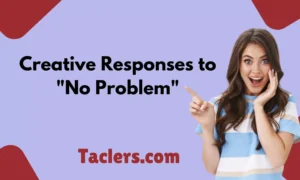Declining an RSVP politely is important for maintaining professionalism and good relationships. Whether it’s due to a scheduling conflict, personal reasons, or prior commitments, your response should be courteous and clear.
Here are 30 tactful ways to decline an RSVP while keeping the tone respectful and appreciative.
1. “Thank you for the invitation, but I’m unable to attend due to a prior commitment.”
Explanation:
This response expresses gratitude while clearly stating the reason for your absence.
Example:
Host: You’re invited to our annual conference.
You: Thank you for the invitation, but I’m unable to attend due to a prior commitment.
By saying “Due to a prior commitment,” you indicate that you have other obligations.
2. “I appreciate the invite, but unfortunately, I have a scheduling conflict.”
Explanation:
A polite way to decline by mentioning a conflict in your schedule.
Example:
Host: Join us for dinner next week.
You: I appreciate the invite, but unfortunately, I have a scheduling conflict.
By saying “Scheduling conflict,” you convey that another engagement prevents you from attending.
3. “Regrettably, I won’t be able to make it due to personal reasons.”
Explanation:
This response is respectful and provides a general reason for your unavailability.
Example:
Host: We’re having a team-building event.
You: Regrettably, I won’t be able to make it due to personal reasons.
By saying “Personal reasons,” you keep the explanation brief and respectful.
4. “Thank you for thinking of me, but I have a prior engagement that I cannot reschedule.”
Explanation:
This reply shows appreciation while explaining that you have a commitment that cannot be changed.
Example:
Host: Please come to our charity gala.
You: Thank you for thinking of me, but I have a prior engagement that I cannot reschedule.
By saying “Prior engagement,” you highlight that your schedule is fixed.
5. “I’m honored by the invitation, but I’m already committed to another event.”
Explanation:
A formal way to decline, emphasizing your existing commitment.
Example:
Host: You’re invited to our wedding reception.
You: I’m honored by the invitation, but I’m already committed to another event.
By saying “Committed to another event,” you underscore that you have a conflicting obligation.
6. “Unfortunately, I will be unable to attend due to unforeseen circumstances.”
Explanation:
A respectful response indicating that something unexpected has come up.
Example:
Host: Join us for a weekend retreat.
You: Unfortunately, I will be unable to attend due to unforeseen circumstances.
By saying “Unforeseen circumstances,” you indicate that the situation is beyond your control.
7. “Thank you for the invite, but I must decline due to work commitments.”
Explanation:
A straightforward response explaining that work obligations are preventing you from attending.
Example:
Host: We’re having a networking event next month.
You: Thank you for the invite, but I must decline due to work commitments.
By saying “Work commitments,” you specify the nature of your conflict.
8. “I regret to inform you that I won’t be able to join you due to family obligations.”
Explanation:
This response is courteous and acknowledges family responsibilities.
Example:
Host: Attend our holiday party.
You: I regret to inform you that I won’t be able to join you due to family obligations.
By saying “Family obligations,” you explain your reason respectfully.
9. “I’m grateful for the invitation, but I have other plans that day.”
Explanation:
A polite way to decline by mentioning existing plans.
Example:
Host: We’re having a book launch event.
You: I’m grateful for the invitation, but I have other plans that day.
By saying “Other plans,” you indicate that you’re already engaged elsewhere.
10. “Thank you for considering me, but I have a prior commitment that I cannot adjust.”
Explanation:
This response shows appreciation while indicating that you cannot change your prior plans.
Example:
Host: Join us for a seminar next week.
You: Thank you for considering me, but I have a prior commitment that I cannot adjust.
By saying “Prior commitment,” you emphasize that your schedule is already set.
11. “I appreciate the invitation, but I have an existing engagement at that time.”
Explanation:
A clear response indicating that you have another engagement during the proposed time.
Example:
Host: We’re hosting a networking mixer.
You: I appreciate the invitation, but I have an existing engagement at that time.
By saying “Existing engagement,” you convey that you’re occupied with another commitment.
12. “Unfortunately, I won’t be able to attend due to a scheduling conflict.”
Explanation:
A polite and professional way to explain that your schedule does not allow for attendance.
Example:
Host: Please come to our annual review meeting.
You: Unfortunately, I won’t be able to attend due to a scheduling conflict.
By saying “Scheduling conflict,” you indicate that your time is already allocated.
13. “Thank you for the invite, but I’m unable to join due to a conflicting appointment.”
Explanation:
A respectful response that specifies a scheduling conflict.
Example:
Host: You’re invited to our charity auction.
You: Thank you for the invite, but I’m unable to join due to a conflicting appointment.
By saying “Conflicting appointment,” you clarify that you have another scheduled obligation.
14. “I regret that I cannot attend due to an unavoidable commitment.”
Explanation:
A formal way to express regret while stating that your commitment cannot be avoided.
Example:
Host: Attend our annual gala.
You: I regret that I cannot attend due to an unavoidable commitment.
By saying “Unavoidable commitment,” you convey that your absence is necessary.
15. “Thank you for the kind invitation, but I have a pre-existing commitment.”
Explanation:
This response acknowledges the invitation while mentioning a pre-existing engagement.
Example:
Host: Join us for a professional workshop.
You: Thank you for the kind invitation, but I have a pre-existing commitment.
By saying “Pre-existing commitment,” you indicate that your schedule is already full.
16. “I appreciate the invitation, but I must decline due to an overlapping obligation.”
Explanation:
A polite way to decline, indicating that another obligation overlaps with the event.
Example:
Host: We’re hosting a team-building retreat.
You: I appreciate the invitation, but I must decline due to an overlapping obligation.
By saying “Overlapping obligation,” you clarify that you have a conflicting commitment.
17. “Regrettably, I will not be able to attend due to a prior arrangement.”
Explanation:
A formal response indicating that you have an arrangement that conflicts with the event.
Example:
Host: Attend our client appreciation dinner.
You: Regrettably, I will not be able to attend due to a prior arrangement.
By saying “Prior arrangement,” you emphasize that your schedule is already set.
18. “Thank you for the invitation, but I have other engagements that I cannot change.”
Explanation:
A clear response that acknowledges your existing engagements.
Example:
Host: Join us for a business presentation.
You: Thank you for the invitation, but I have other engagements that I cannot change.
By saying “Other engagements,” you indicate that your schedule is occupied.
19. “I regret that I will not be able to participate due to prior commitments.”
Explanation:
A respectful response that mentions previous commitments as the reason for your absence.
Example:
Host: You’re invited to our quarterly meeting.
You: I regret that I will not be able to participate due to prior commitments.
By saying “Prior commitments,” you clearly explain your scheduling conflict.
20. “I’m honored by the invite, but I have a previous engagement that I cannot miss.”
Explanation:
This response conveys appreciation and states that you have an important prior engagement.
Example:
Host: We’re hosting a corporate event.
You: I’m honored by the invite, but I have a previous engagement that I cannot miss.
By saying “Previous engagement,” you emphasize the importance of your other commitment.
21. “Thank you for including me, but I have another obligation at that time.”
Explanation:
A courteous response that acknowledges the invitation while stating that you have another obligation.
Example:
Host: Attend our product launch.
You: Thank you for including me, but I have another obligation at that time.
By saying “Another obligation,” you clarify that your schedule is already booked.
22. “I appreciate your invitation, but I have an earlier commitment that I cannot adjust.”
Explanation:
This reply shows gratitude and states that your prior commitment cannot be rescheduled.
Example:
Host: Join us for a networking event.
You: I appreciate your invitation, but I have an earlier commitment that I cannot adjust.
By saying “Earlier commitment,” you indicate that your schedule is fixed.
23. “Regrettably, I won’t be able to attend due to a scheduling overlap.”
Explanation:
A formal way to explain that your schedule conflicts with the event.
Example:
Host: Attend our conference next month.
You: Regrettably, I won’t be able to attend due to a scheduling overlap.
By saying “Scheduling overlap,” you convey that you have a conflicting engagement.
24. “Thank you for the invitation, but I have an existing appointment at that time.”
Explanation:
A polite way to decline by mentioning an existing appointment.
Example:
Host: Join us for a gala dinner.
You: Thank you for the invitation, but I have an existing appointment at that time.
By saying “Existing appointment,” you clarify that you have another scheduled event.
25. “I’m grateful for the invite, but I have a conflicting responsibility.”
Explanation:
A respectful response that indicates a conflicting responsibility.
Example:
Host: We’re hosting a team event.
You: I’m grateful for the invite, but I have a conflicting responsibility.
By saying “Conflicting responsibility,” you convey that you have another duty.
26. “Unfortunately, I have a prior engagement and cannot attend.”
Explanation:
A straightforward response indicating that you have a prior engagement.
Example:
Host: Join us for a project meeting.
You: Unfortunately, I have a prior engagement and cannot attend.
By saying “Prior engagement,” you state that you’re already committed elsewhere.
27. “Thank you for the invitation, but I have a scheduling conflict that I cannot resolve.”
Explanation:
This reply shows appreciation while mentioning an unsolvable scheduling conflict.
Example:
Host: Attend our annual gala.
You: Thank you for the invitation, but I have a scheduling conflict that I cannot resolve.
By saying “Scheduling conflict,” you indicate that your schedule cannot accommodate the event.
28. “I regret to inform you that I have a previous commitment and cannot attend.”
Explanation:
A formal way to decline by stating a prior commitment.
Example:
Host: Join us for a workshop.
You: I regret to inform you that I have a previous commitment and cannot attend.
By saying “Previous commitment,” you convey that you’re occupied with another engagement.
29. “I’m honored by the invitation, but I’m already booked for that time.”
Explanation:
A polite response expressing honor and mentioning that you’re already booked.
Example:
Host: Join our client appreciation event.
You: I’m honored by the invitation, but I’m already booked for that time.
By saying “Already booked,” you indicate that you have a scheduling conflict.
30. “Thank you for the invite, but I have another obligation that I cannot miss.”
Explanation:
A respectful way to decline by indicating that you have another important obligation.
Example:
Host: We’re having a business dinner.
You: Thank you for the invite, but I have another obligation that I cannot miss.
By saying “Another obligation,” you emphasize the importance of your prior commitment.

Nicholas Clark is a dynamic writer with a knack for capturing the essence of human reactions. With a background in psychology, he delves deep into the science behind every smile, frown, and gasp. His insightful articles on Taclers.com will leave you pondering the fascinating world of human emotions.










